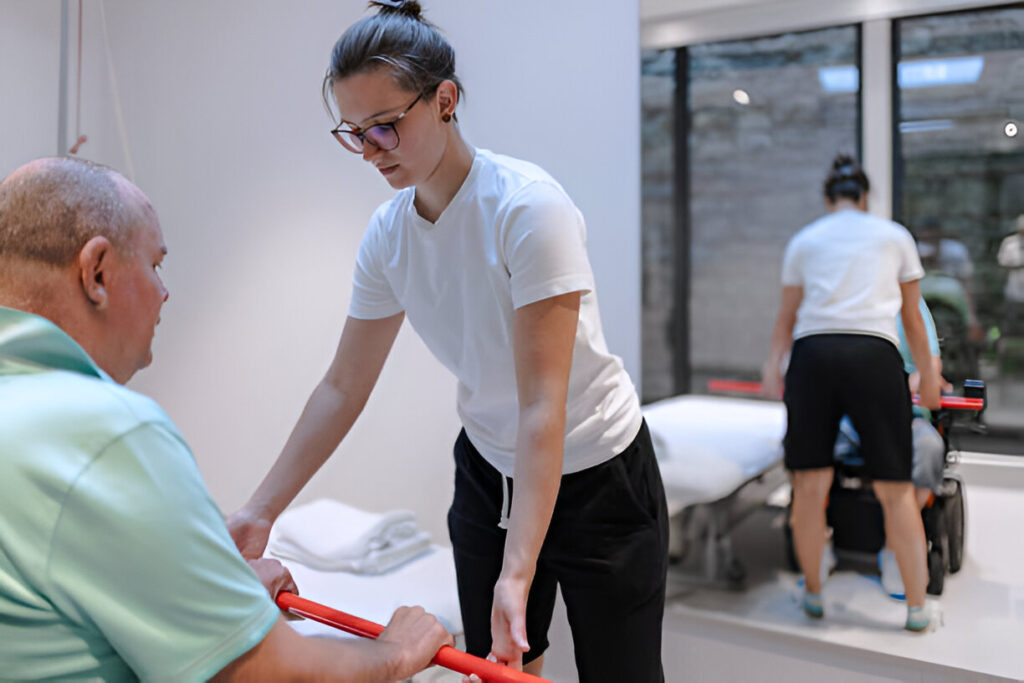Physiotherapy is an essential service for individuals with disabilities, providing a means to improve mobility, functioning, and, consequently, independence. The benefits of disability physiotherapy are multifaceted and can have a profound impact on the quality of life for people living with a wide range of disabilities. Through a holistic approach, physiotherapists tailor their programs to meet the specific needs of each individual, aiming to maximise their physical potential and enhance their overall wellbeing.
Personalised Care and Therapy Planning
At the core of disability physiotherapy, the focus is on creating personalised care plans that consider the unique abilities and hurdles faced by each person. These customised therapy plans are developed after a comprehensive assessment that evaluates movement patterns, muscle strength, flexibility, and functional capabilities. This process ensures that each individual receives a therapy regimen that is not only effective but also aligns with their personal goals and daily living requirements.
Enabling Function through Targeted Interventions
Physiotherapy interventions are specifically designed to enable function and promote the development of motor skills. These can include exercises to improve balance and coordination, strength training to enhance muscle performance, and gait training to encourage more efficient walking patterns. By focusing on these targeted interventions, physiotherapy strengthens the body and empowers individuals to perform daily tasks with greater ease and less dependency on others.
Adaptive Techniques and Assistive Technology
Part of the role of disability physiotherapy is to introduce adaptive techniques and recommend assistive technology that can be incorporated into the lives of individuals with disabilities. Such adaptive measures may include the use of mobility aids, such as walkers or wheelchairs, and other technological advancements to support function and promote independence.
The Role of NDIS Providers
In Australia, the National Disability Insurance Scheme (NDIS) plays a critical role in providing support to individuals with disabilities. Registered NDIS physiotherapy providers are crucial components of this system, as they offer accessible services that align with the goals outlined in NDIS plans. These providers understand the funding and processes within the NDIS, ensuring that individuals receive the physiotherapy support they are entitled to under their plan.
Empowerment through Education
Education is another facet of physiotherapy that cannot be understated. It involves teaching individuals and their carers about condition management, home exercise programs, and ways to prevent secondary complications. Such education is empowering, as it provides people with the knowledge to take control of their health and implement strategies that can maintain and improve their functional capacity over time.
Pain Management Strategies
For many individuals living with disabilities, pain can be a significant barrier to mobility and independence. Through manual therapy techniques, such as massage and mobilisation, physiotherapists help alleviate pain and improve joint movement. In conjunction with pain education, these methods act to minimise discomfort and enhance the effectiveness of physical interventions.
Facilitating Social Participation
Increased mobility and independence also open doors to greater social participation. When individuals can navigate their environments and engage in activities of daily living with fewer restrictions, their opportunities for social interaction and community involvement expand dramatically. This has a positive impact on mental health and contributes to a more fulfilling and connected life.
Setting Realistic and Achievable Goals
An important aspect of the physiotherapy process is setting realistic and achievable goals. By working within the actual capabilities of the individual and incrementally advancing therapy outcomes, physiotherapists set their clients up for success, motivating them with tangible progress. These goals are not just clinically relevant, but they are also aligned with the individual’s aspirations and lifestyle preferences.
Collaborative Approach to Treatment
Disability physiotherapy doesn’t exist in isolation; it often requires a collaborative approach involving other healthcare providers, such as occupational therapists, speech therapists, and doctors. This multidisciplinary team works in concert to address the full spectrum of an individual’s needs, facilitating a more comprehensive and integrated therapy experience.
Improving Quality of Sleep and Rest
Physical impairments can often lead to disruptions in sleep patterns and lead to insufficient rest. Physiotherapy includes interventions to enhance comfort during sleep, such as stretches and position strategies. By improving sleep quality, individuals can experience better energy levels and moods, both of which are important for daily living and rehabilitation progress.
Innovations in Physiotherapy Practice
Advancements in the field of physiotherapy continue to improve the way services are delivered to people with disabilities. Innovations such as telehealth services allow for remote consultations, making it easier for those with mobility challenges to access professional advice and guidance. Such technological progress compliments the traditional hands-on approach and caters to the changing needs of the population.
Advocating for Accessibility and Inclusion
Physiotherapists are often advocates for their clients, pushing for improved accessibility and inclusion within communities. Their unique insights into the challenges faced by individuals with disabilities enable them to recommend changes to public spaces, workplaces, and homes to ensure they are accommodating and promote independence.
Phoenix Physiotherapy’s Comprehensive Services
For those seeking comprehensive physiotherapy services, Phoenix Physiotherapy provides a wide range of interventions tailored to individuals with disabilities. Their experienced team understands the complexities of different conditions and works tirelessly to help their clients achieve the highest level of functioning and independence possible.
Conclusion
Physiotherapy has the power to transform lives by improving mobility and fostering independence for people with disabilities. Through the expertise of dedicated professionals, innovative practices, and the support of systems like the NDIS, individuals can overcome physical challenges and engage more fully in the world around them. As awareness of the benefits of physiotherapy continues to grow, so too will the ability for people with disabilities to lead more independent, satisfying lives.


